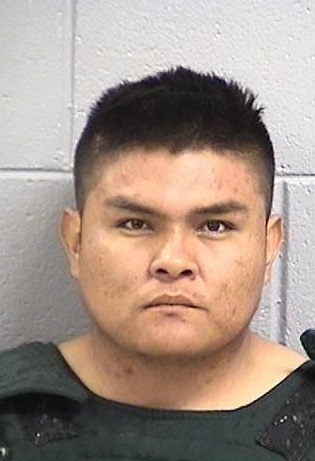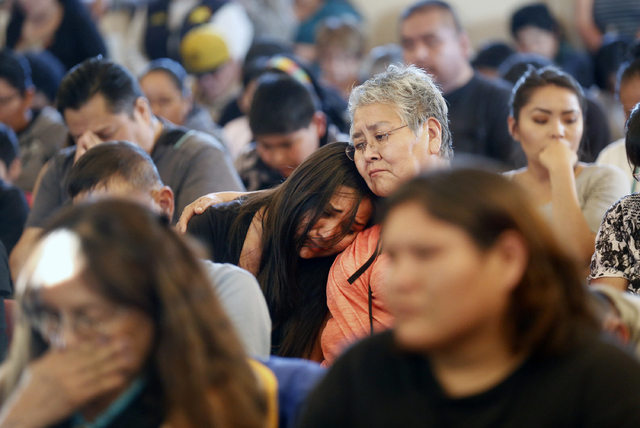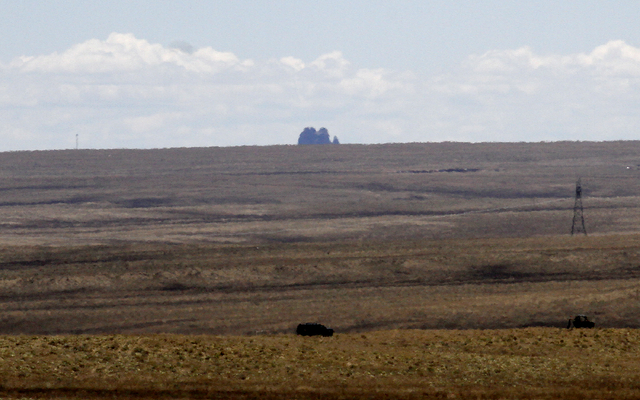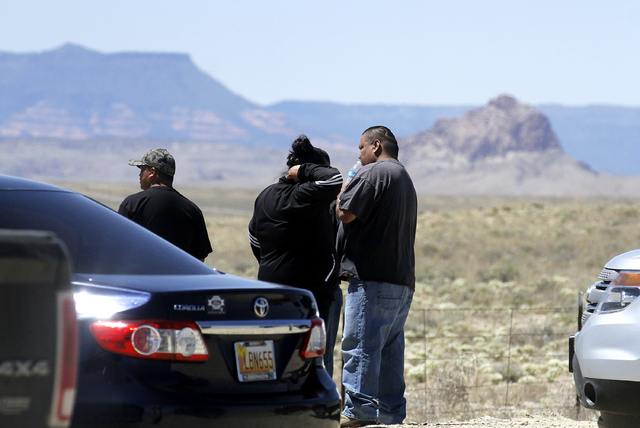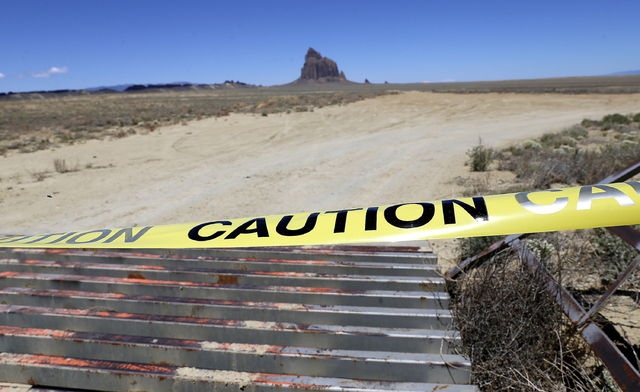SHIPROCK, N.M. (AP) — On the far side of a desert hilltop in the shadow of the Shiprock Pinnacle, a towering monolith sacred to the Navajo Nation, the stranger ignored the cries of an 11-year-old girl. ADVERTISING SHIPROCK, N.M. (AP)
SHIPROCK, N.M. (AP) — On the far side of a desert hilltop in the shadow of the Shiprock Pinnacle, a towering monolith sacred to the Navajo Nation, the stranger ignored the cries of an 11-year-old girl.
Hours had passed since the man had talked the girl and her brother into his van by promising to show them a movie.
She begged to be taken home, but he led her away from her 9-year-old brother, to an even more remote spot, where he removed her clothes and sexually assaulted her. Then he hit her twice in the head with a tire iron and left her for dead before driving off and leaving the boy as well, all alone, as night fell.
These and other details about the final moments of Ashlynne Mike’s life began to emerge Wednesday from court documents and family members, as the suspect, Tom Begaye, a 27-year-old Navajo man from a neighboring community, appeared before a federal magistrate on murder and kidnapping charges.
Begaye was quiet as he faced the victim’s family and other tribal members in court. Outside, they yelled “bastard” and “go to hell” as he was led away.
The crime has sent shockwaves through the small tribal communities that line the San Juan River in New Mexico’s northwest corner. The grief that overwhelmed searchers when they found the girl’s body Tuesday, the morning after she disappeared, shifted Wednesday to anger, and to disbelief that one of their own could commit such a heinous crime.
Sher Brown knows both the victim and the suspect. Begaye regularly joined one of her brothers at sweat lodge ceremonies and church meetings on the Navajo Nation.
It was inside a sweat lodge, where Navajo men traditionally participate in spiritual cleansing, where the local FBI agent and tribal investigators found Begaye Tuesday night. His vehicle was parked outside, matching the boy’s description of a maroon van with no hubcaps. The girl’s brother later identified Begaye as the driver of the van.
“How can a man of that nature who did what he did go into a sweat lodge after?” Brown said through tears.
Begaye remained quiet as the magistrate told him he could face life in prison if convicted of the murder charge. He has yet to have a public defender appointed, and will remain in federal custody. A preliminary hearing is scheduled Friday in Albuquerque.
Begaye was active in cultural and religious life on the nation’s largest American Indian reservation, Brown said. And there’s no immediate indication of a criminal history — an Associated Press review of state and federal records shows only one previous run-in, a drug possession citation less than three weeks ago.
The case raises questions about law enforcement responses in remote areas of the Navajo Nation. The tribe doesn’t have its own Amber Alert system, so must rely on outside agencies to spread the word about child abductions.
“If they would have put out an Amber Alert right way I believe they might have saved her life,” said Rick Nez, the president of the Navajo’s San Juan Chapter.
According to the affidavit, Ashlynne Mike and her 9-year-old brother were playing with their cousin near a road about a quarter-mile from their home after being dropped off at their bus stop after school, when Begaye offered them a ride.
Not wanting his sister to go alone, her brother jumped in too. Their cousin refused, as did the victim’s older sister, moments earlier.


